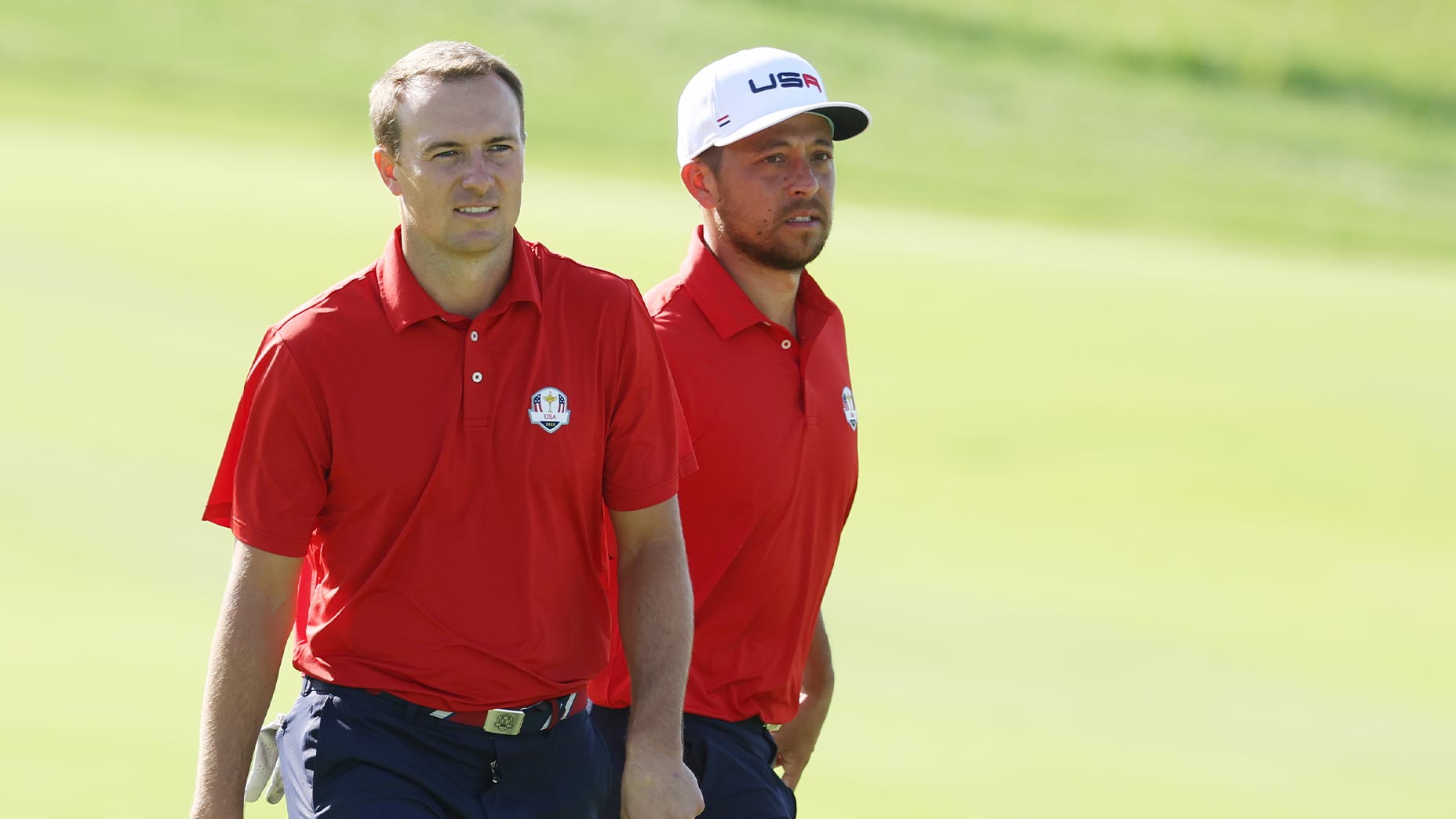Jordan Spieth knew a day like Sunday was coming for Xander Schauffele.
“I’ve been playing with Xander for the better part of seven years now, and if you asked me, is there any doubt in your mind that he would win major championships? I would say that I don’t know a weakness in his game,” Spieth said from the Charles Schwab on Wednesday, three days after Schauffele’s first-career major win at the PGA Championship. “It was just a matter of time, so it’s not surprising at all.”
Spieth could see it in the way that Schauffele walked, in the way that he talked to the press following each of his heartbreaks, but mostly he could see it in the way that he lifted.
Yes, there’s been much made of the ceaseless golfers as athletes debate, and to date, much of the evidence has not been flattering to the best golfers in the world. But Xander’s victory on Sunday at Valhalla was proof that being one of the best golfers in the world involves a lot more than just swinging the club. And more than that, it was proof that reinventing your body can have wondrous effects on the state of your game. All it took was a willingness to do something Spieth calls “uncommon.”
“Am I inspired? Yeah,” Spieth said. “I mean, one thing that he’s been doing that’s been different is he’s looked to add speed. But he did it very methodically, very quietly, very in the dark.”
Sometimes, Spieth said, Schauffele’s in the dark approach meant getting a workout when other players weren’t willing. And sometimes, it meant literally in the dark.
“It’s been amazing watching him go after tournament rounds. On Thursday, Friday, Saturday, and he’ll go to the workout trailer and hit a heavy gym session after the round,” Spieth said. “It’s not common out here. There’s a few guys that will do it, but it’s still not common.”
Xander’s willingness to work in an extra set throughout the week might not have seemed like much in the beginning. But like everything else in pro golf, the gains are incremental — but even one percent better can be enough to change the course of someone’s legacy. For a player like Schauffele, someone who’d been wildly successful but had fallen just below the rungs of major championship glory, getting one percent better presented life-altering benefits.
“Everybody goes before [their rounds for a workout] now, but he’s going after and hitting these heavy workouts with a goal in mind that he thought would gain a slight advantage over [his competitors],” Spieth said. “He already had a lot of speed, and he did it while maintaining his consistency and his short game, and it just allowed him to hit shorter clubs into greens, maybe over the course of four rounds being a shot or two.”
On Sunday at the PGA, being one shot better over the course of four rounds wasn’t just important, it was everything. Just ask Bryson DeChambeau what one shot would have meant on PGA Sunday, the day DeChambeau fell one shot short of Schauffele.
“The way he approached that patiently is extremely inspiring,” Spieth said. “I’m not a very patient person and I think that’s gotten me in trouble a lot of times in my career, as far as the process. Like trusting the process and giving it time and not having to have results right away. He didn’t seem bothered by close calls. He had to answer a lot of questions regarding Sundays or whatever, and I remember having those for a year or two as well.”
The day was coming for a long time, but now Spieth says that Xander has broken through. And after a breakthrough, Spieth knows as well as anyone: look out.
“Once it goes your way, then you start thinking they’re all going to go your way, and then they do,” Spieth says.
“I wouldn’t be surprised if this is just the beginning.”
